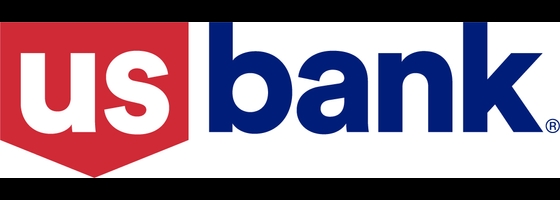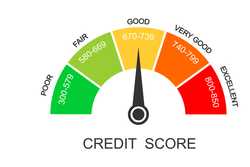How to Build Business Credit in 8 Steps

Our evaluations and opinions are not influenced by our advertising relationships, but we may earn a commission from our partners’ links. This content is created by TIME Stamped, under TIME’s direction and produced in accordance with TIME’s editorial guidelines and overseen by TIME’s editorial staff. Learn more about it.
Your business credit profile and credit score indicate to credit agencies, lenders, vendors, and suppliers how well your company manages its debts—and its likelihood of paying them on time. A strong business credit score makes it easier to get financing and can lead to better interest rates and repayment terms, which can help you navigate challenges and grow your business.
It takes time and effort to establish and build business credit. Here are eight steps to help you get started.
Building business credit starts by registering your company as a sole proprietorship, partnership, corporation, or limited liability company (LLC). Making your business a distinct legal entity enables you to take advantage of legal benefits, favorable tax breaks, and personal liability protection. For most small businesses, the process is as simple as registering your business name with state and local governments where you conduct business. A CPA or lawyer can help with registration requirements and choosing the best business structure for your situation.
An Employer Identification Number (EIN) functions like a Social Security number for your business. You may need one to pay federal taxes, open a bank account, hire employees, and apply for federal and state licenses and permits. While sole proprietors and single-member LLCs can generally use their own Social Security number, the IRS says you need an EIN if your business does any of the following:
Online tax tools like Found can help you save for taxes, find and track deductions, and pay taxes directly from an app—giving you more time to run and grow your business.
Short for Data Universal Numbering System, a D-U-N-S® number is a unique nine-digit business identifier issued by credit bureau Dun & Bradstreet (D&B). While optional, having a number can help potential lenders and partners evaluate the strength and stability of your company. A strong number can help your business negotiate better terms on loans, insurance, and credit agreements with vendors and suppliers. You can get a free DUNS number on the D&B website.
Once you start accepting and spending money as a business, opening a business bank account (or two) is essential for separating your personal and business expenses. Common business accounts include checking, savings, and merchant services accounts, which let you accept credit and debit cards for customer transactions. You choose an online bank or a traditional one like U.S. Bank, which has nearly 5,000 branches nationwide and offers merchant services and competitive money market account rates.
Either way, be ready to provide your EIN, business formation documents, business license, and any ownership agreements when you apply for an account.
The best small business credit cards offer valuable rewards and benefits while helping you build credit. Card issuers consider your personal credit history so you can get a card before you have an established business credit profile. With poor credit, you might qualify for the Revenued Business Card, which combines a prepaid business card with a flexible spending line. Like other credit cards, on-time (or early) payments and low credit utilization will help boost your business credit score. Of course, late and missed payments negatively impact your credit scores (business and personal), so avoid charging more than you can comfortably afford to pay or finance.
Many vendors and suppliers allow you to buy now and pay later. Net 30 (when your payment is due 30 days after the invoice date) is the standard for many businesses. However, you might have a term of net seven, net 20, net 60, or even net 90. Invoice accounts can be a great way to build business credit, but only when vendors and suppliers report your payment activity to the credit agencies. Making on-time payments helps improve your credit score, and paying early helps even more.
Your payment history is the most significant part of your business credit score. You can build a stronger credit profile by making on-time payments or, better yet, early payments. Consider setting up automatic payments to stay on track—and reminders to check your bank account balance before payments are due to avoid overdrafts. A business platform like Lili, or Lili Premium, which offers a business debit card and joint accounts for multiple owners, can help you and your partners stay organized.
A credit utilization ratio (or rate) is the percentage of available credit in use. For example, if you have a $10,000 credit limit and a $1,000 balance, your credit utilization would be 10% ($10,000 ÷ $1,000 = 10)—meaning you're using 10% of your available credit. A good rule is to keep your credit utilization ratio below 30% because it shows you're doing a good job of managing your credit and not overspending.
Once established, you'll want to maintain your business credit. After all, the better your credit, the more likely you'll receive favorable rates and terms on small business loans, insurance premiums, vendor agreements, and more. Here are a few ways to ensure the credit you worked hard to build stays strong.
It's essential to understand what influences your business credit score so you can stay on track. Here are the top factors, according to credit bureau Experian:
It's essential to monitor your business credit reports from the three main credit agencies: D&B, Experian, and Equifax. Aim to check the reports at least once yearly (quarterly is ideal). While these reports generally contain the same type of information—such as a business profile, financial data, and public records—each agency has its own process for collecting and verifying the data. Be on the lookout for inaccurate information, and if you find any errors or outdated details, contact the agency to make the appropriate change.
Consistently paying your bills on time (or early) is vital to building and maintaining business credit. It helps strengthen your credit score and enables you to maintain good relationships with vendors and suppliers. Furthermore, you'll avoid late fees and interest charges—and you might be able to score a discount if you have the cash to pay early.
Having access to business credit can be a lifeline for a business. It lets small business owners secure the capital they need to cover daily expenses, buy inventory, hire staff, and ultimately expand. Furthermore, having strong business credit helps you secure better rates and terms on loans, insurance premiums, and vendor and supplier agreements—while protecting your bottom line.
Importantly, business credit also helps protect your company's ownership. You can secure capital without seeking out investors who may want to tweak your business plan or take a stake in the company.
Even if you don't need funding now, taking steps to build business credit can pay off in the long run since you'll have better borrowing opportunities should the need arise.
There's no magic button for building business credit fast: It's a process that takes time. Still, to build credit as quickly as possible, create a plan (and mark it on your calendar) to help you stay on track with your list of credit-building tasks, from registering your business and getting an EIN to making on-time payments and monitoring your credit reports.
You'll need established business credit to qualify for a business credit card or loan with just an EIN, though you might also need to provide your Social Security number. Some corporate credit cards are available with only an EIN, but they often have substantial requirements for revenue, cash, and cash equivalents.
There's no set "good" score because each credit agency uses a different scale. For example, Dun & Bradstreet PAYDEX Score measures a company's past payment performance on a scale of 1 to 100, with scores of 80 and above considered low risk. D&B also assigns a Delinquency Predictor Score (DPS) to offer insight into the likelihood that a business could make a late payment or go bankrupt. A DPS score of 1 suggests a low chance of delinquency, while a 5 means a high risk.
Meanwhile, Experian uses a scale of 0 to 100, where higher numbers represent less risk, and scores above 75 are considered excellent.
Many lenders will consider your personal credit score over your business credit score when determining your eligibility for a small business loan. This may be especially true if you're a sole proprietor or start-up without established credit. Still, you'll need a business credit score to apply for a term loan from a bank or an SBA-backed loan.
The information presented here is created by TIME Stamped and overseen by TIME editorial staff. To learn more, see our About Us page.





